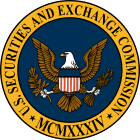Following a recent expose in the Wall Street Journal, Massachusetts Senator Edward Markey called on the Securities & Exchange Commission to strengthen FINRA’s ability to fight stockbroker fraud. (FINRA is the Financial Industry Regulatory Authority, a self regulatory organization that derives its enforcement powers from the SEC.)
The Journal reported that over 5000 stockbrokers are still working in the industry even though their former employers were shut down by FINRA. Sen. Markey also complained about a survey that suggests that 90% of the brokers who have customers complaints are successful in having their records expunged. FINRA, however, says the number is under 5%.
While we disagree with the Senator on the ease in which bad brokers can hide their records, the unfortunate truth is that very few people check those records even though they are available online and without charge. (Yesterday we posted a story about celebrity stockbroker Bambi Holzer and her 112 page disciplinary record – we doubt she would have stayed in the brokerage business if people had bothered to check her record.)
We also agree that the financial reserves needed to open a brokerage business are way too meager. For just a few thousand dollars, a person can open a brokerage business. McDonalds requires far more of their restaurant franchise operators than does FINRA. Get a bad Quarter Pounder and you are out a few dollars. Get a bad broker and you could be out your life savings.
For many of these “boiler room” shops, one customer claim and their doors are closed. Add inadequate or no insurance and the public is left with no protection. Although its easy to tell whether a financial advisor has been accused of financial fraud (FINRA’s brokercheck system is free), there is no good way of telling how much money a firm has to cover potential claims.
All to often we hear of customers who lose their life savings to a bad broker. When they go to sue, both the brokerage firm and broker are broke.
Strengthening the reporting and disciplinary standards is a good start. Nothing works well, however, unless clients are willing to do some due diligence on their own. While no one can completely eliminate stockbroker fraud, ordinary customers and FINRA can do more to reduce these tragedies.
There are dozens of victims of DBSI, Provident, and Carlton Cabot fraud cases that were never able to collect a penny from their brokerage firm. Yet the brokers who worked at these shops can simply open a new firm or walk across the street and go back in business within a few weeks. We have seen the same thing happen with people who are caught up in Battoo and Tracy Sunderlage fraud cases.
If you lost money to an investment advisor, stockbroker, insurance agent or other financial professional, give us a call. The consultation is free and often we can help get back your hard earned money. Stockbroker fraud cases are usually handled on a contingent fee basis meaning no legal fees unless we can collect money for you.
For more information, contact attorney Brian Mahany at or by telephone at (direct). Services available in most jurisdictions.
Post by Brian Mahany, Esq.


